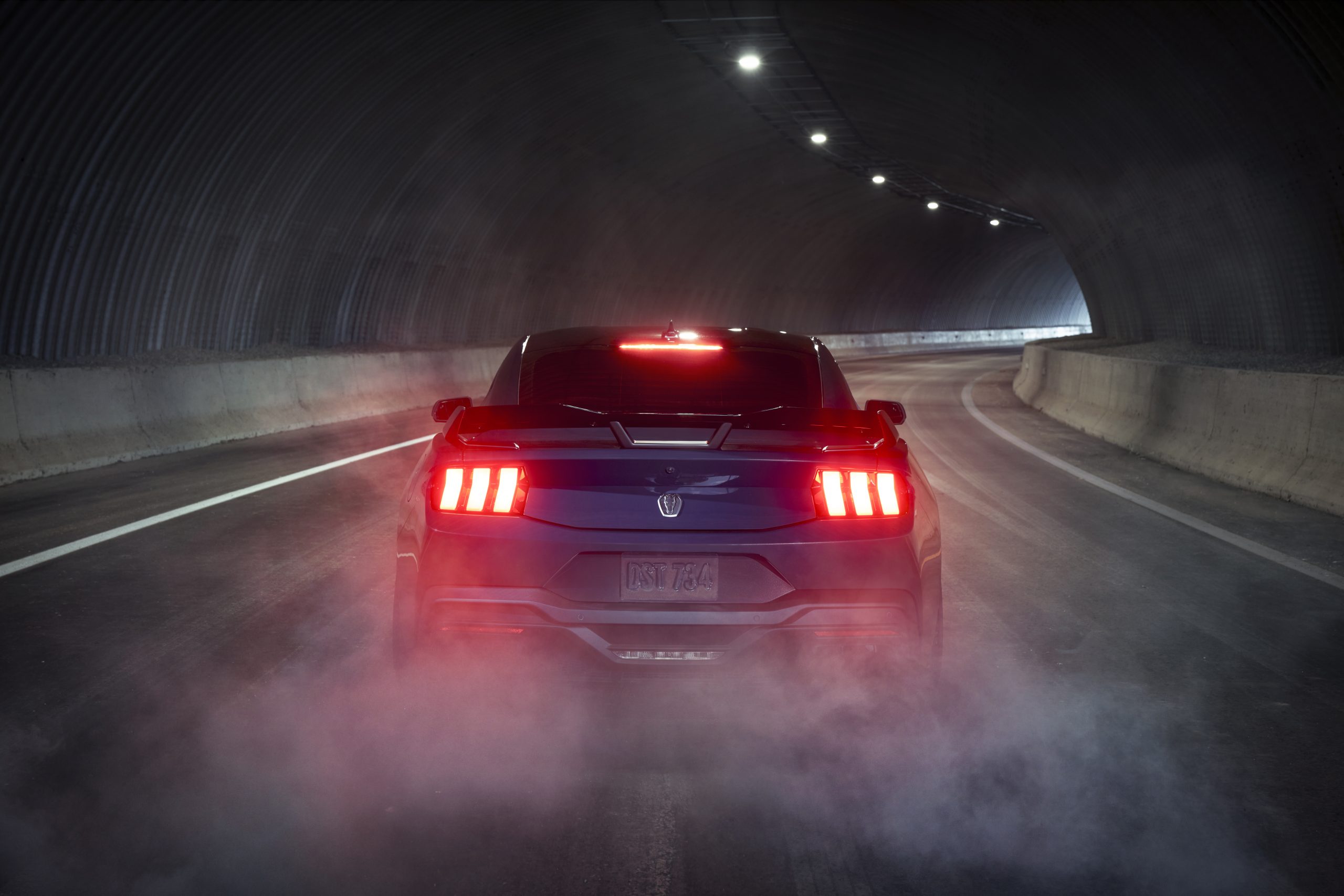Fellow DriveTribers may remember Unpopular Carpinions as one of great debate and (somewhat) intellectual discussion. DriveTribe admins lauded the series as a massive success in drawing engagement and inciting communication amongst users, whether we joined in praise or were at each others’ throats in ways that would humble Redditors.
With the unveiling of the new S650-generation Ford Mustang, I figured there was no better time to dig up the hatchet and ask: what’s in a name?
Seriously. What’s in a name? Mustang. Hellcat. Turbo S. GT-R. AMG. How much weight does a name really bear, and should it matter?
Because last time I checked, “Mustang Dark Horse” is a pretty stupid name. Ah yes, you’re telling me this horse is made out of horse? I know. That’s why it’s called “Mustang.” And granted, past names were a little dumb too. Mustang Cobra? Right, like that made any sense. But at least it somewhat tied itself to past heroes like the Shelby Cobras and Mustangs of old. Boss 302 was rad as hell, and so was GT500, which, while it hardly meant anything, was an epic name that made history and carried itself well into the 2020s.

However, Ford is far from the only manufacturer dropping monikers that land with the ferocity of cocaine in 1980s Miami. The lavish poster cars of Italy bore names that still send chills through fanatics, such as GTO, Dino, or Countach. Mish-mashed jumbles of letters and numbers have combined to give identities to the most fabled automobiles in German history, including the 911, M3, and M5. Of course, Dodge Daytona was a hell of a nameplate as well, and don’t sleep on Firebirds either.
You could argue that those names are sacred because of their ties to motorsports (at least some of them) or their comparatively rich history, and you’d be right beyond a shadow of a doubt. But don’t forget that some modern machines have risen to legendary status without much history to play off.
Cough, Hellcat.

So what about this new Dark Horse variant, which sounds more like a black sheep among high-performance Mustangs?
Look at its recipe of more power, sharper suspension, and sticky tires, and it could easily pass as a new Mach 1 or a Boss 302. Heck, throw some snakes on it and call it the next GT350. Ford would probably rake in more coin from fanboys and Boomers alike had they decided to keep capitalizing off ancient titles. On the one hand, it is a silly name that seemingly can’t be spoken without a chuckle or an eye roll. But I also get why the change-up.
With more youngins entering the new car market, at least before all this markup nonsense, why shouldn’t Ford take a risk and start something new? It’s Ford’s bid to give prospective buyers a shot at being a part of a new Mustang family and differentiate themselves from those who came before, even if the car’s roots are very familiar.

Internet chatrooms and social media comments poke fun at what’s potentially the best driver’s Mustang since the GT350R, leaving the Dark Horse to suffer the same ridicule as the LaFerrari over merely a name. But that’s just it. They’re just names. An assortment of letters and numbers to give something an identity on the showroom floor, and Ford simply wants to start something new as great minds in automotive history have all done before.
Carroll Shelby believed that titles shouldn’t matter so much and that the car should make the nameplate, not the other way around. In his day, GT500 and GT350 hardly meant a damn thing, and look at those cars now; legends of the past and dream cars of the present. In due time, we’ll look back on the Dark Horse in the very near future as another driver’s car to be reckoned with, even if the Dark Horse stands as more of a black sheep.
Published in Thoughts and Takes



What’s in a name? A rose by any other name would smell as sweet. – WIlliam Shakespeare